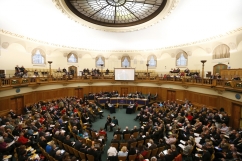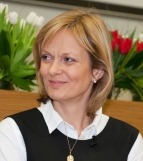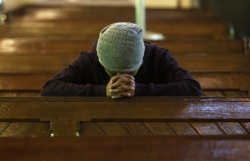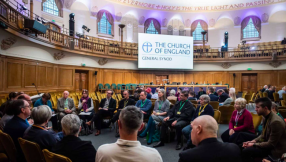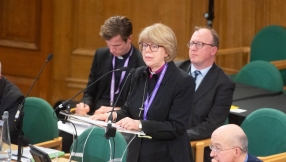
Vicars in rural Britain are rushing between multiple churches to take Sunday services while their congregations are dying off faster than they can be replaced, according to a new report.
Urgent calls for reform of rural ministry, such as appointing parish administrators to relieve clergy of the burden of running several churches at once, are proposed in the report, to be debated at General Synod in February.
Fewer than one in five rural churches is experiencing growth - a statistic repeated in urban areas - and parishes are struggling to fill all the positions on the church council, especially to find church wardens. In some parishes, if all positions were filled, they would outnumber the worshippers in the pew.
"There was a frequent lament that some (not all) congregations were stuck in a rut and were not open to new ideas or approaches but were desperate for people to come to church to ensure that the building remained open and the familiar worship continued," says the report, based on quantitative and qualitative research.
In one parish, no more than 2,000 people were maintaining six Grade 1 churches.
However, there was a strong commitment across communities to keep churches open, especially where they served as a hub for community activites and had good facilities. Initiatives such as Fresh Expressions and Messy Church were making a tangible difference.
One vicar said the age profile was heavily weighted in favour of older people. "Our numbers have stayed the same overall but I'm basically replacing the dead people with new people who are much younger but in the future when all the oldest people have died, there won't be enough 40-50 years old to take their places."
Nearly two-thirds of Church of England churches, 10,199 and two-thirds of parishesm, 8,394, are in rural areas. The population of rural England is 9.3 million, or 17.6 per cent of the population.
More than seven in ten are in multi-church groups, with more than 11 churches per group becoming increasingly common. Some groups cover hundreds of square miles, with tens of miles between churches.
Bishop of Knaresborough James Bell, who heads the synod's rural affairs group, writes in the report that ministry models that assume one church per priest are not effective in such contexts and clergy have mostly had to forge their own way ahead in order to offer effective parish ministry.
They were finding it difficult to focus on growth at a time when when the demands of a scattered population, bureaucracy, many buildings and social change in rural communities can be all-absorbing, he says.
Arguing that multi-church groups need not be seen as "instances of decline and despair" and that they can instead be vanguards in rethinking mission and ministry, he nevertheless admits that there can be a "reluctance to recognise realities and an inertia which drains energy, enthusiasm and potential from everyone."
More women clergy work in rural parishes than urban ones.
Clergy in rural areas feel pressured to conduct as many services as possible on a Sunday and they find it difficult to get to know congregations when there is no time to talk after the service because of having to rush to the next service.
The report is the latest initiative in a series of reports designed to boost growth throughout the Church to be debated at the next synod.
Released for Mission, Growing the Rural Church, also recommends more ecumenical partnerships.
Bishop Bell says: "A Christian presence in every community is more than a strap-line - it is the heart of English Anglicanism. It is the expression of our obligation, as the church for all the people of the nation, to leave no community untouched by the gospel of Jesus Christ, lived out among the people of every place.
"Ministry and mission in the rural church is highly demanding of energy and imagination. Growth is being realised but much needs to be done."










